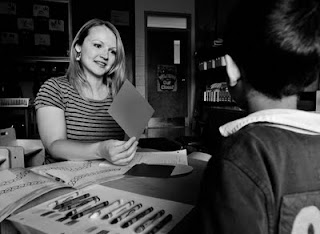Belinda Tasker, AAP National Medical Correspondent July 15, 2011
Plans to introduce mental health checks for three-year-olds should be expanded to include a test for learning difficulties, a leading psychologist says.
Clinical psychologist Tim Hannan believes the move would stop many parents signing their children up for treatments which have little chance of improving language and reading skills.
Mr Hannan criticised the number of pseudo-scientific programs which promise so-called miracle cures for a child's learning disabilities without any solid evidence to back their claims.
He said the federal government should consider introducing checks for learning disabilities when the new mental health screening program for three-year-olds begins in July 2012.
The checks could include an assessment of a child's comprehension skills and their use of sound patterns, such as their ability to rhyme and detect differences between words.
"It's estimated that up to 10 per cent of children may have a specific learning difficulty," Mr Hannan told AAP.
"If untreated they can affect their academic skills and success in school and increase the risk of the child developing behavioural problems.
"The government has been talking about doing mental health screening at age three, so one could say that it could be desirable that a comprehensive assessment of mental health in early childhood would include a brief assessment of phonological skills which would highlight the potential of learning difficulties at a later age."
The government announced in its May Budget plans to adjust existing health checks for young children to include an assessment of their emotional wellbeing and development.
The health checks were previously carried out on four-year-olds but are being expanded and brought forward to start at three.
Mr Hannan, a senior lecturer at the University of Western Sydney and Australian Psychological Society fellow, said learning difficulties usually become apparent around the age of four.
The early they were detected, the more likely the child would benefit from treatment.
"To date, learning difficulties have been identified by teachers after a child has started school," Mr Hannan said.
"This might not be until they are in grade one, so they are six or seven years old.
"It is optimal if children with reading problems could be identified at a younger age so a proper intervention can commence at the start of school rather than one or two years after they start school."
Mr Hannan said parents who were worried about their child having a learning difficulty should seek a proper assessment from a trained clinical psychologist who could then select an appropriate treatment plan.
He advised parents to steer clear of pseudo-scientific therapies, saying they often lacked evidence to back their theories, could be expensive and set a child up to fail.
Mr Hannan will discuss children and learning difficulties at the Australian Psychological Society College of Clinical Psychology's conference at Coolum, Queensland, this weekend.

